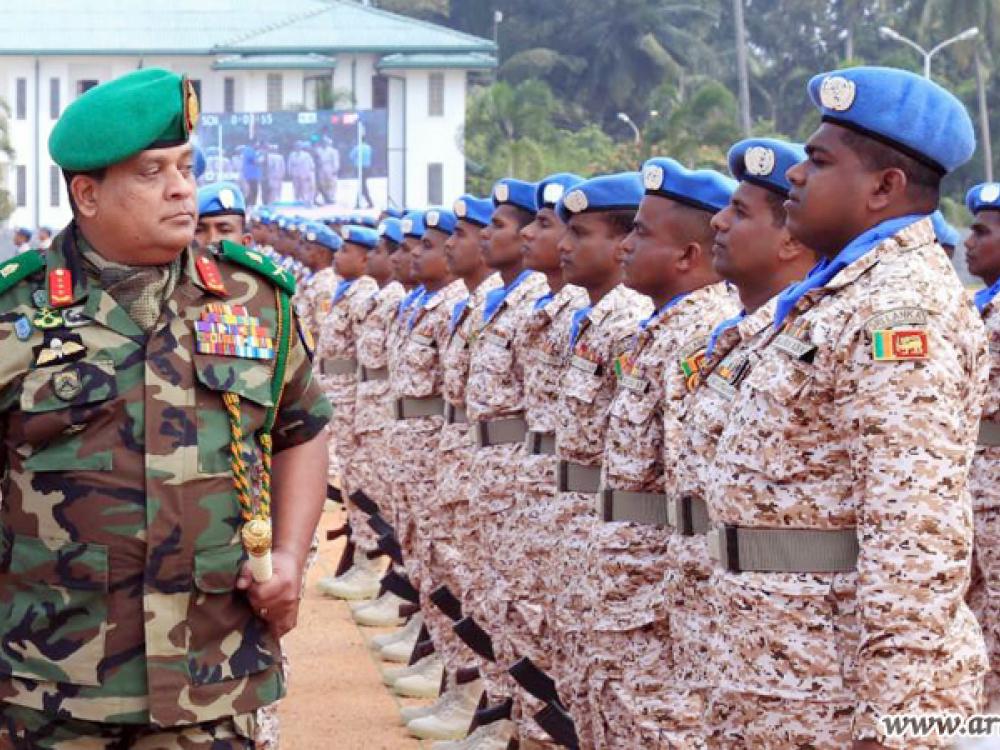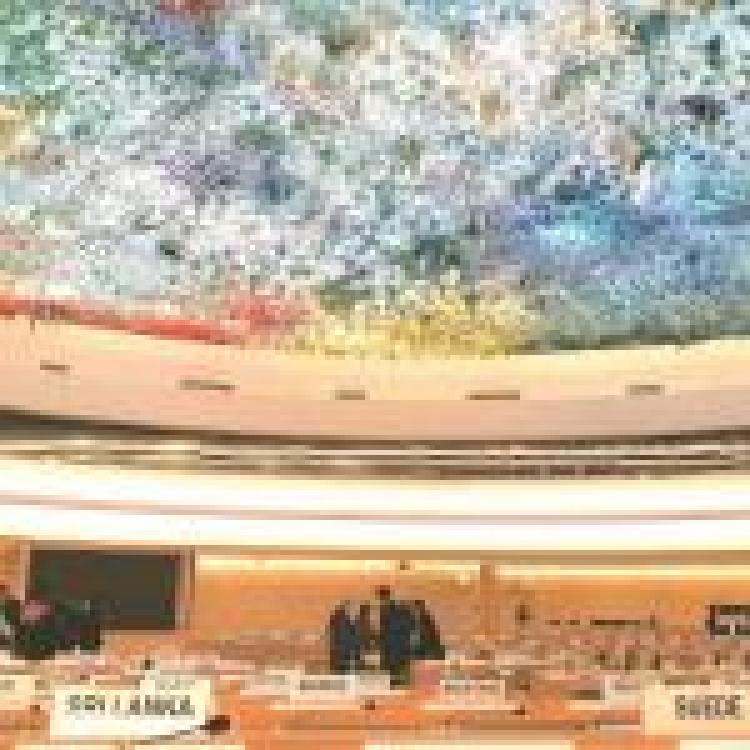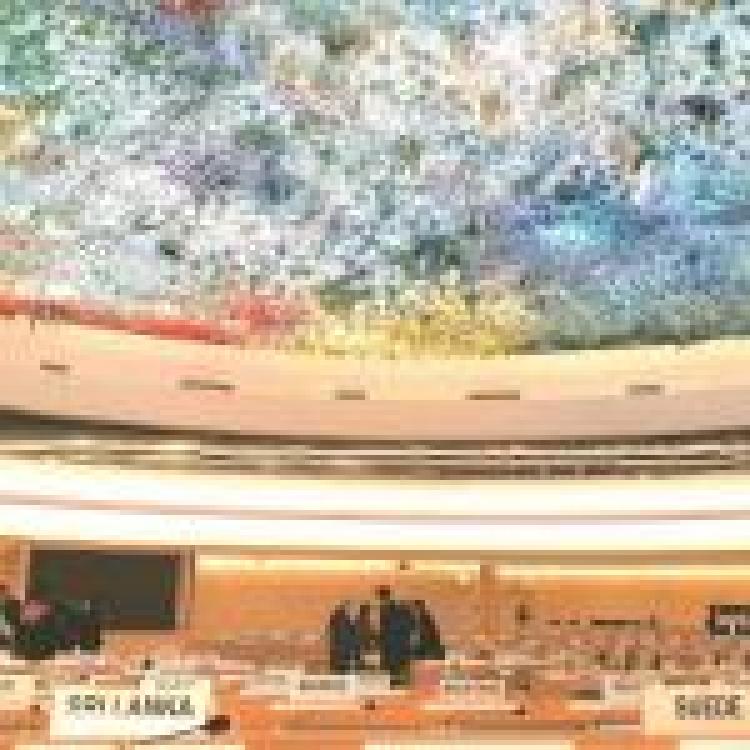![]()
Speaking at the 44th Session of the UN Human Rights Council, a delegate for Sri Lanka warned the UN against being “unduly politicised” whilst also claiming that Sri Lanka was committed to “UN Peacekeeping and upholding human rights”.
Sri Lanka’s human rights record

Sri Lanka stands accused of a litany of human rights abuses which include those committed during the final stages of the war, where an estimated 40,000-70,000 were killed, as well during UN peacekeeping operations.
In April 2017, the UN-appointed peacekeepers from the Sri Lankan Army to manage an operation in Haiti. The Sri Lankan forces deployed were implicated in a child sex ring as officers were accused of exchanging money and food for sex with girls and boys as young as 12. An internal UN report obtained by the Associated Press showed that from 2004-2007 at least 134 Sri Lankan peacekeepers exploited and sexually abused children. Out of these 134, none were imprisoned or faced charges.
9 months ago, the UN suspended Sri Lankan troops from peacekeeping due to the appointment of war veteran Shavendra Silva due to concerns over his human rights record. Silva was the Commanding Officer of the 58th Division of the SLA during the last stages of the war and UN reports have implicated him and his troops in alleged war crimes and crimes against humanity.
However, since then the UN has awarded Sri Lanka’s peacekeeping force, Sri Lanka Army Medical Corps (SLMAC), for their service in South Sudan despite increasing attacks on human rights from the current administration. In May of this year, Sri Lanka’s president Gotabaya Rajapaksa warned that he would withdraw his government from global bodies if attempts to prosecute Sri Lankan soldiers for war crimes are pursued.
“Undue politicisation”
![]()
During the recent UN Human Rights session on “Peace Operations and Human Rights”, the Sri Lankan delegate warned the UN against being unduly politicised stating that this would undermine the credibility of their institutions. He further asserted:
“There have been instances where unproven allegations of human rights violations were used as instruments to unduly pressurize and manipulate contributions to peacekeeping by governments for undue political gains”.
The delegate also claimed that the UN should “remain impartial” and to respect “the principle of sovereign equality”.
This statement follows consistent attacks from Sri Lanka’s Prime Minister, Mahinda Rajapaksa, who maintains that the previous administration’s co-sponsorship of UN Resolution 30/1, which committed to reconciliation, was a concession to “foreign conspirators”.
Listening to civil society
The Sri Lankan delegate further called on UN peacekeeping operations to ensure that their efforts “remain a collective endeavour” by ensuring that they engage and interact with “various stakeholders, including civil society and the wide population”.
This announcement follows the establishment of a Presidential Task Force which has been described as a threat to the rule of law. The International Commission of Jurists has criticised the task force warning that the independence of public officials will be compromised as they “they are compelled to report to a military-dominated body”. Human rights organisations further warn of a crackdown on civil society and a slide towards authoritarianism.
Commitment to Human Rights
The Sri Lankan delegate further boasted of Sri Lanka’s experience of engaging in “a humanitarian struggle with a terrorist organisation” and of ensuring that their police and military engage in human rights training programmes.
This statement comes despite numerous accusations of human rights abuses by both the military and the police. Despite the armed conflict ending over a decade ago Sri Lanka still has one of the largest active military per capita in the world with over 240,000 personnel.
Sri Lanka’s security force has been seen storming places of worship and maintain heavy surveillance on civil society actors. More recently, Sri Lanka’s police arrested and tortured a disabled man under false charges.
During the delegate’s statement, he touched on the issue of conflict-related sexual violence and stated that the country was committed to protect women and “enhance the participation of women in peacekeeping operations”.
This follows reports from Amnesty International that “impunity for sexual and gender-based violence” remains high in Sri Lanka. The rights group highlighted that just in the first 15 days of 2020, 142 cases of rape, and 42 cases of serious sexual abuse, and 54 child abuse cases were reported.
According to a 2018 ITJP report documenting abuses over four years, Tamils have been disproportionately affected by sexual violence by state security forces, both during the war and in the post-war context, and that sexual violence has been committed to a large extent by those in Sri Lanka’s “extensive security apparatus who profit from a culture of impunity.”
In May of this year, Sri Lankan President Gotabaya Rajapaksa attempted to defend the country’s human rights record.
“Maintaining the human rights of an individual is akin to preventing muddy puddles during rain,” claimed Rajapaksa. Due to the “volatile” nature of warfare, International Humanitarian Laws are “not a set of clear-cut rules in black and white that one may tick off against,” he added.
Read the Sri Lankan delegation’s full statement here.


